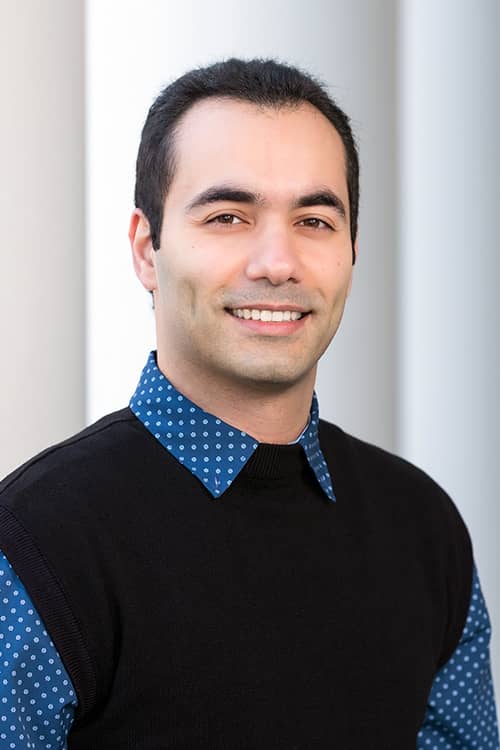
Vahid Eghbal Akhlaghi, Ph.D. student, Business Analytics
Creates models for disaster response
• Hometown: Rasht, Iran
• Faculty mentor/advisor: Prof. Ann M. Campbell
• What is your degree program and expected graduate date? Ph.D. in Business Analytics, 2022
• Please describe your research: My research focuses on major logistical problems related to natural disasters and the development of improved preparedness methods. Specifically, I work to optimize approaches for storing and distributing fuel on islands after a disaster and identify the best roads and bridges to invest in and mitigate to enable quick travel through cities after a flood event.
• In simple terms, why does this research matter? According to the National Oceanic and Atmospheric Administration (NOAA) ‘s Office for Coastal Management, in 2018 and 2019, the United States experienced 28 weather and climate disasters with losses of more than $1 billion. Natural disasters’ lasting effects on public health, infrastructure, and national economies are inextricably linked to recovery efforts and disaster response. My research develops resourceful data, tools, and models, which are critical for carrying out recovery plans and helping the nation be better poised to respond to disasters equitably and efficiently.
• How soon after starting at the University of Iowa were you able to participate in research? I began participating in research under the guidance of Prof. Ann Campbell, starting the second semester of my Ph.D. at the University of Iowa.
• How has being involved in research made you more successful at the University of Iowa? My research helped me establish collaborations with individuals associated with the Federal Emergency Management Agency (FEMA). In our correspondence with FEMA, Prof. Campbell and I have received efficient data and shared our research findings in detail. Additionally, I’ve had the opportunity with my research to collaborate with different disciplines like the Civil and Environmental Engineering Department at the University of Iowa. This collaboration research, led by Prof. Ibrahim Demir, aims to develop an optimization approach for flood preparedness. Learning how to develop those research partnerships has also made me more successful.
• What are your career goals and/or plans after graduation? I plan to pursue an academic career and will be applying for faculty or post-doc positions where I can teach and continue my work in studying major logistical problems related to natural disasters. One of my career goals is to develop efficient preparedness and response methods and ensure people’s safety and vital infrastructure maintenance in vulnerable areas following severe natural disasters.
• Does your research have connections to or implications for COVID-19? Please explain. I am working on a project sponsored by the Department of Transportation (DOT) to develop an optimization approach for identifying the best set of roads for investment in mitigation. This allows for speedy travel through cities after flood events and minimize the corresponding travel times. Designing models to identify the critical road segments for mitigation based on their accessibility to medical aid distribution centers in pandemic situations is one of this project’s goals.
Banner location: online—
